VISIT SHIRAKAWA-GO AND GOKAYAMA [ULTIMATE JAPAN GUIDE]

WHAT TO SEE IN SHIRAKAWA-GO? HOW TO GET TO SHIRAKAWA-GO? IS SHIRAKAWA-GO WORTH VISITING?
Shirakawa-go is a picturesque village located in the Gifu Prefecture of central Japan, known for its traditional gassho-zukuri farmhouses. These farmhouses are characterized by their steep thatched roofs, designed to withstand heavy snowfall during winter.
Shirakawa-go is famous for seeing and visiting gasshō-zukuri houses, an architectural style unique to the region listed as a UNESCO World Heritage Site in 1995.
Shirakawa-go and its neighboring Gokayama region were recognized as UNESCO World Heritage sites in 1995, highlighting their cultural significance and the importance of preserving the unique architectural style.
These two villages have the particularity, because of their geographical isolation far in the Japanese Alps, of having preserved a traditional style unique in Japan.
Both villages are beautiful. Our visit to Shirakawa-go and Gokayama was one of the highlights of our road trip through Japan.
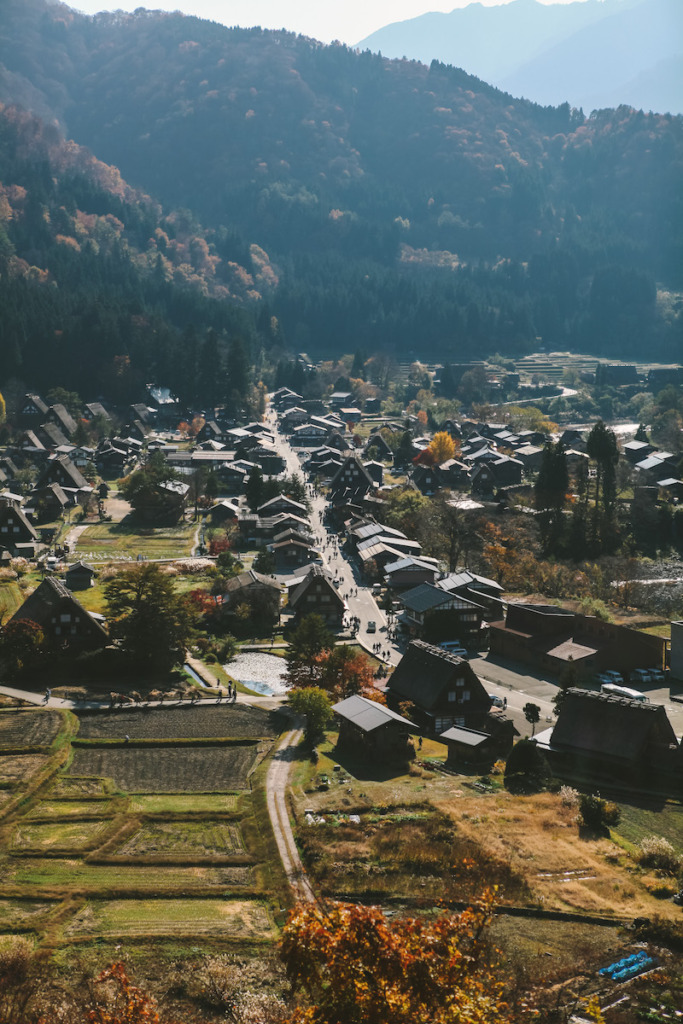


Key Takeaways from a visit to Shirakawa-go
– Shirakawa-go and its neighboring Gokayama region were recognized as UNESCO World Heritage sites in 1995, highlighting their cultural significance and the importance of preserving the unique architectural style.
– Both villages are located near the famous and beautiful town of Takayama, another must-see in Japan.
– Apart from the architecture, Shirakawa-go is famous for its beautiful landscapes that change dramatically with the seasons.
– It took us almost a full day to visit Shirakawa-Go and Gokayama.
HERE IS A SNEAK PEEK ABOUT SHIRAKAWA-GO:
WHAT TO SEE IN SHIRAKAWA-GO?
1. Discover the Gassho-Zukuri architecture, typical of the Japanese Alps

The gassho-zukuri style houses, typical of the Japanese Alps region, are large wooden houses with very steep thatched roofs to withstand the thick layer of snow that falls in winter.
They were inhabited at least until the mid-nineteenth century by artisans specializing in the breeding of silkworms. Most houses were built over 250 years ago.
Today, if the village of Shirakawago is still inhabited, the region lives mainly from tourism. No less than 1.5 million tourists go there every year.
Note: these are the same houses as those presented at the Hida Folk Museum in Takayama or in Gero at the Gassho-Mura, except that in Shirakawa-go, the houses are inhabited (110 gasshō-zukuri houses and about 600 inhabitants).
You will therefore visit a place full of life and will be able to exchange with the inhabitants. It is a magnificent place not to be missed if you plan to visit the Japanese Alps region!
2. Visit the Kanda family house-museum
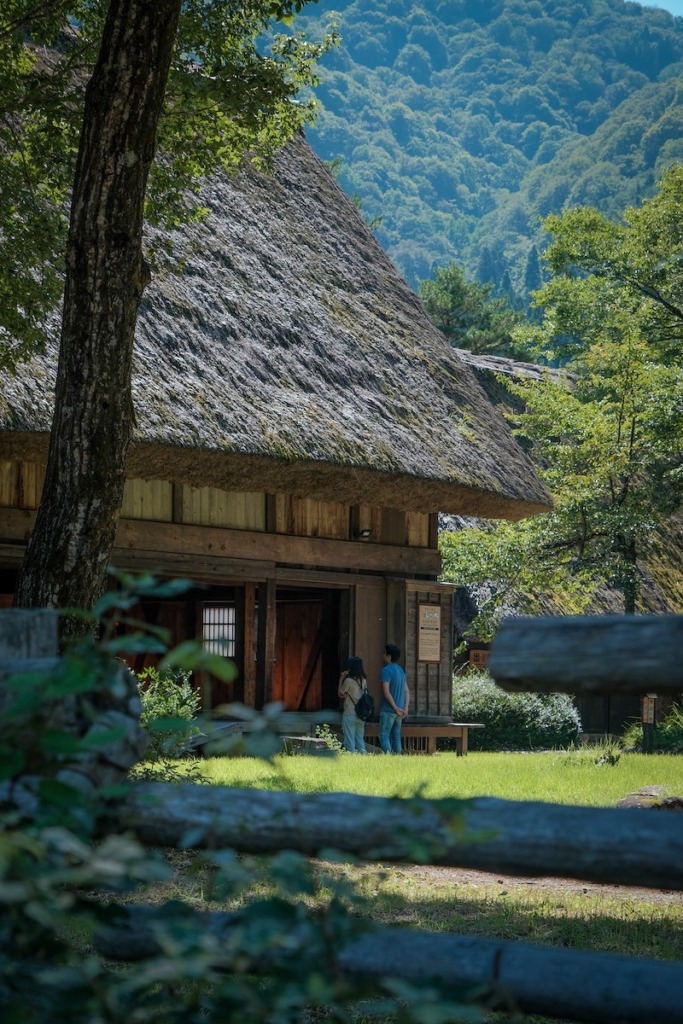
Some of the houses were transformed into a museum at Shirakawa-go.
We recommend the Kanda family home, where you can discover objects dating from the 15th century and you will learn in particular why the roofs of the houses in the area have gradually taken on this very particular shape
3. Check out the Gasho Folk Museum

Cross the bridge to visit the Gasho Folk Museum, a reconstructed village that includes several Gassho-Zukuri style houses dismantled and rebuilt next to each other.
- Admission: ¥600.
- Open from 8.40 a.m. to 5 p.m. (9 a.m. to 4 p.m. from December to February), closed on Thursdays from December to March.
- Location: here
- Website: here
4. Make sure to go at Shiragawa-go viewpoint!
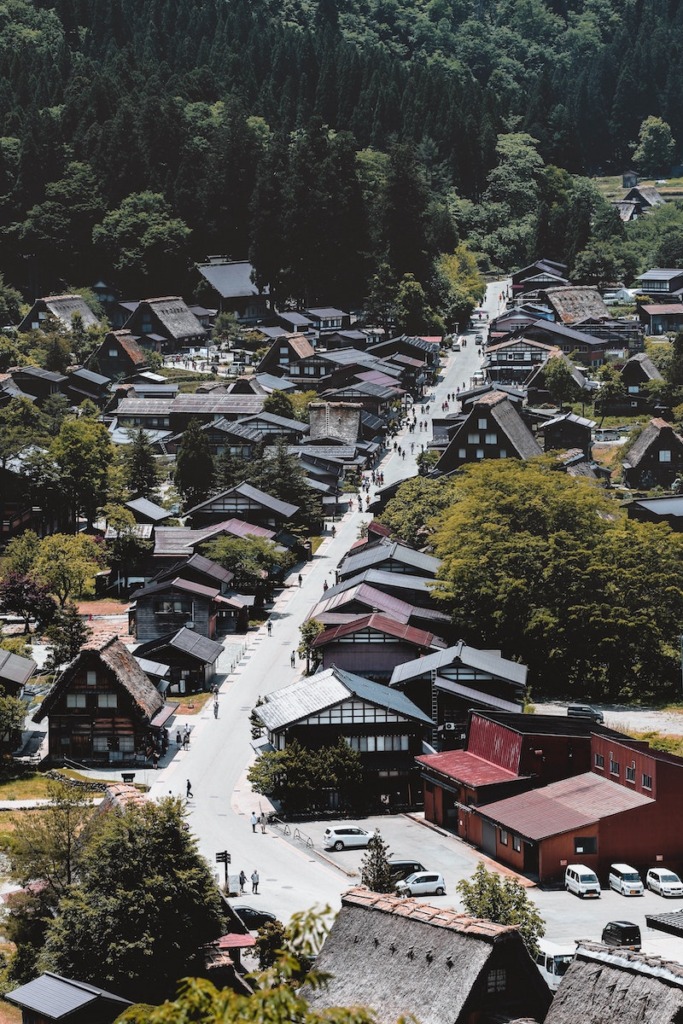
Reach the Ogimachi Castle Observatory to have the most stunning view of the village.
On foot allow 40 minutes walk uphill.
The best option is to take the shuttle which takes 10 minutes to get you up the viewpoint. It costs 200 yen one way/per person. From there we recommend going back to the village on foot or taking the shuttle bus back.
The shuttle bus departs from here.
- Location of the viewpoint: here
5. Visit Myozenji temple

This unique-looking temple in the historic town of Shirakawa-go is a must-see.
It was built almost similarly to the traditional gassho houses of the town. The temple also has a bell tower/torii gate of the same design.
Location: here
6. A little further visit Shirakawa Hachiman Shrine

This is a beautiful shrine located towards the edge of the village. Worth a visit if you are visiting this part of Shirakawa-go.
Location: here
7. Enjoy the local food

There are lots of great local restaurants around the village of Shirakawa-go as well as many stands serving ice creams, coffee and other yummy snacks.
The area where Shirakawa-go is located is famous for its beef, called Hida Beef. Therefore you will find all sorts of restaurant serving the famous beef.
If you don’t eat meat, no worries, there are lots of soba noodle shop as well as udon places.

Gohei mochi is another famous snack from the region. It is made from rice with grilled peanut sauce served on a skewer! A must-try in this part of Japan!
8. Stay overnight in Shirakawa-Go for the ultimate experience!
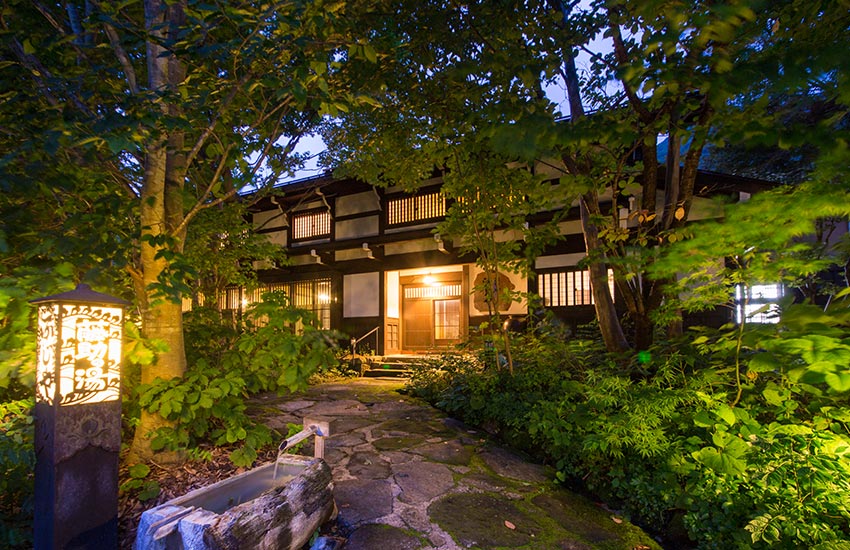
Staying overnight in Shirakawa-go is a unique experience! Most tourists come for a day trip, so after 5pm you will have pretty much the village to yourself!
A dozen of traditional houses have been transformed into minshuku (Japanese family inn).
However, it gets full very quickly as there aren’t many rooms. So we highly recommend booking as early as possible to enjoy this unique experience in Japan.
How to get to Shirakawa-go?

Getting to Shirakawa-go by bus
From Takayama: Nohi bus company, 1 hour trip, ¥2470 (or ¥4420 round trip).
From Kanazawa: Nohi bus company, 75 minutes, ¥3290.
All buses arrive and depart from Shirakawa-gō Bus Station. This is located a few minutes walk from the entrance to the village. We highly recommend booking your bus tour in advance, as Shirakawa-go attracts millions of visitors every year!
Getting to Shirakawa-go by car
Direct access to the village by car is forbidden. However, there are a few car parks around the village. We took our car to get there and it was super crowded to enter the parking! We waited at least 20min before we could park our car. So do come early to avoid the wait!
Private tour
For more convenience, you can also book a full private tour. The tour will take you to Shinakawa-go but also its beautiful surroundings. If you are a group of people, this is one of the best options to visit Shinakawa-go. Check it out here.
Visit Gokayama near Shinakawa-go
Gokayama is a set of rural villages in Japan with preserved ancient architecture, located in the Shokawa Valley in the southwest of Toyama Prefecture.
Ainokura, the largest village in the region, is home to twenty-three traditional houses with gassho-zukuri style thatched roofs, listed as UNESCO heritage sites. On-site, you can taste the daily life of the inhabitants as well as the excellent local food.
It takes 30min by car to reach the Gokayama villages.
1. Start your visit at Ainokura Village
Located far down the valley, Ainokura is the most remote village in the Gokayama region. It is also the largest of the villages with almost 20 gassho-zukuri farms.
Some of them are private residences, while others have been transformed into restaurants, museums and minshuku.
Being less developed and less accessible than Shinakawa-go, Ainokura is quieter and has much fewer tourists.
So if you have enough time during a trip to Japan, you will appreciate the peaceful atmosphere at Ainokura compared to Shinakawa-go.
Location: here
BOOK: Day trip to Shinakawa-go and Gokayama
2. Suganuma Village
Suganuma is one of the main attractions in Gokayama and it is divided into two areas: Suganuma Village and Gokayama Gassho no Sato.
Pleasant to visit on foot, the two areas are linked together by a tunnel. From here, through an elevator, you can also reach the car park on the hill above the village.
Suganuma Village, and nine of its gassho-zukuri, were designated as UNESCO World Heritage Sites, along with Ainokura and Ogimachi in 1995.
Several gassho-zukuri have been converted into restaurants, minshuku and museums that depict daily life, paper washi and the gunpowder industries.
Location: here
How to get from Shinakawa-go to Gokayama
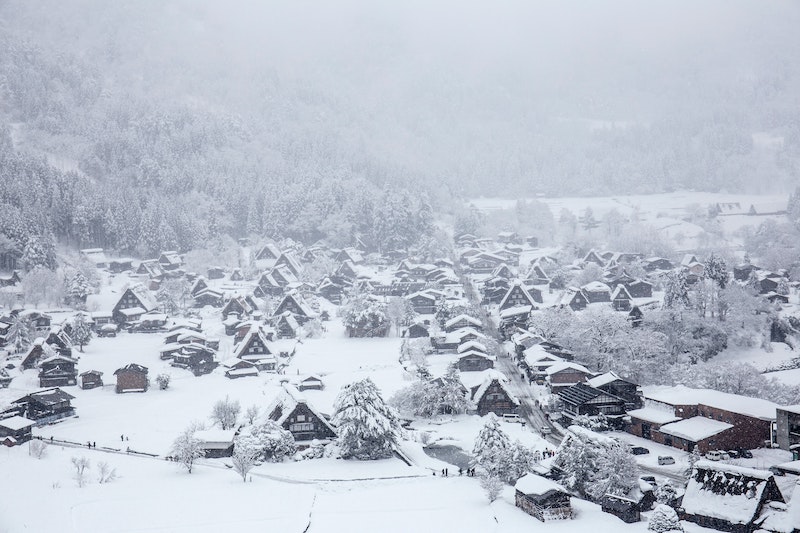
If you have a car, then it will be very easy. It’s a 30min drive up north from Shirakawa-go.
There is also a local bus leaving Shirakaw-go to Gokayama villages. It takes about 1 hour.
However, if you are visiting Gokayama without a car, we rather recommend joining a tour which will make it much easier to visit both places in a day.
You can check different options here.
Best time to visit Shirakawa-go?
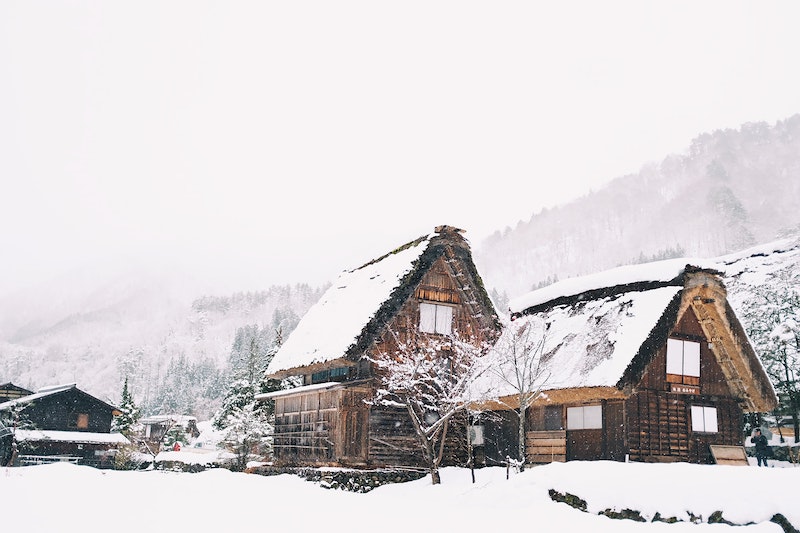
Shirakawa-go can be visited all year round. However, the most scenic period to visit the village is during winter when the entire place is covered with a thick layer of snow.
Every season has its particularity when visiting Shirakawa-go. Even in summer, you will be able to see the green rice fields surrounding the village! Absolutely stunning.
Is Shirakawa-go worth visiting?
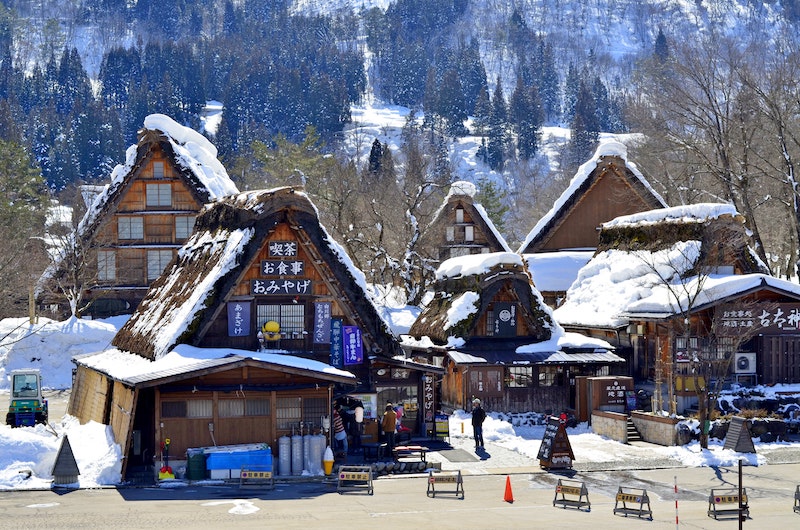
Although it gets very crowded with too many tourists at time, the village of Shirakawa-go is really beautiful and worth the hype! If you stay after 5pm when most tourists leave, you will actually get the village almost all to yourself.
Hence staying overnight wouldn’t be a bad idea either!
If you prefer to totally escape the crowd, then head to Gokayama first. Ainokura and Suganuma villages are much less touristy and often completely skipped by tourists.
Enjoy your trip!
What else to see near Shirakawa-go?
TAKAYAMA

If you are visiting Shirakawa-go, chances are that you have also inlcuded Takayama in your itinerary! And you did right! Takayama is another great place to visit in Japan, located only 1 hour away from Shirakawa-go.
There are many things to see in Takayama such as the historical center of SANMACHI SUJI, TAKAYAMA JINYA Residence or HIDA KOKUBUN-JI temple.
READ: 15 BEST THINGS TO SEE IN TAKAYAMA
KAMIKOCHI
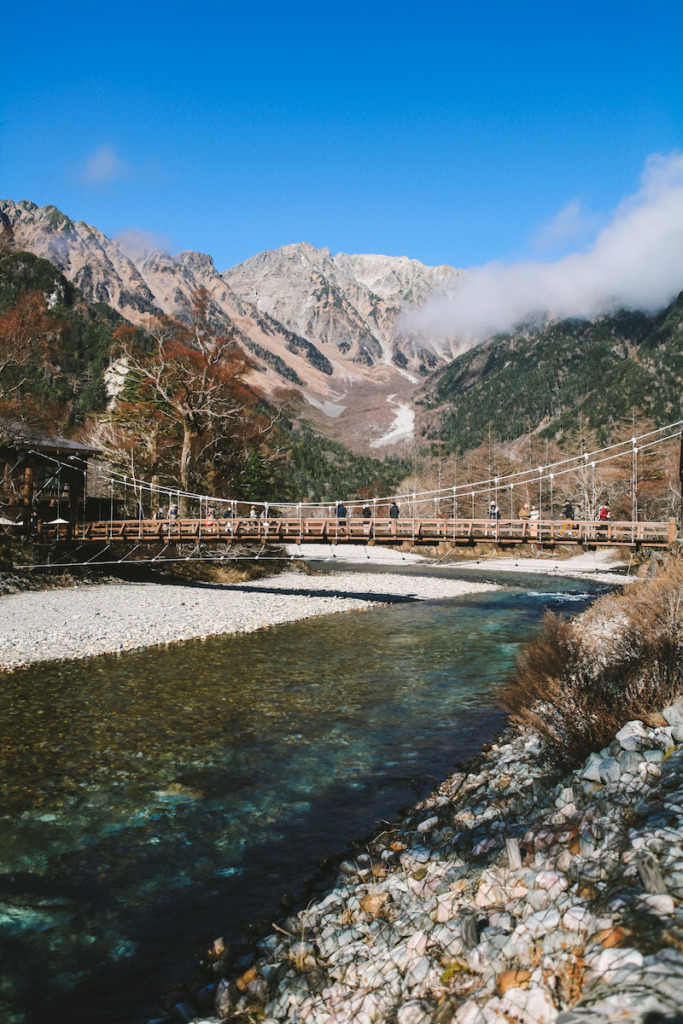
If like us you are planing a road trip through Japan, then Kamikochi should be on your bucket list! Kamikochi is classified as Natural Heritage of Japan.
Kamikochi is a 15 kilometer forest valley located along the Azusa River in the heart of the Japanese Alps in Nagano Prefecture. The site offers a delightful walk that can be done in one day, embellished with magnificent landscapes in spring and autumn.
The Kamikochi plateau is between 1,400 and 1,600 meters above sea level, with peaks reaching over 3,000 meters for the surrounding massifs.
The view from the valley is absolutely stunning!
From Takayama you can reach Kamikochi by bus or by car (1h).
Location: here
READ: FULL GUIDE TO TRAVEL TO KAMIKOCHI
GERO ONSEN

Located in the heart of the Chubu region in Gifu prefecture, between Nagoya and Takayama, Gero Onsen has developed on a transparent alkaline hot spring whose properties have been touted for nearly 1000 years.
Gero is located a little over 1000 meters above sea level. Thanks to an ancient volcano, Gero Onsen is gifted with rich water.
Today Gero Onsen is a great place to rest in the Japanese mountains. Make sure to also visit the Gero Onsen Gassho Village!
Location: here
READ: DISCOVER GERO ONSEN, ONE OF THE MOST IMPORTANT ONSEN TOWNS IN JAPAN
Related posts
- 15 BEST THINGS TO SEE IN TAKAYAMA
- EXPLORE KAMIKOCHI IN THE JAPANESE ALPS
- BEST THINGS TO SEE IN THE JAPANESE ALPS
- WHAT TO SEE IN GERO ONSEN
- GUIDE FOR A VISIT TO NARAI-JUKU
- HIKE ALONG NAKASENDO [TRAVEL GUIDE]
- GUIDE TO TSUMAGO ALONG NAKASENDO
- 15 BEST THINGS TO SEE IN HAKONE NEAR MT. FUJI
- 15 INCREDIBLE THINGS TO SEE AT LAKE KAWAGUCHI
- OBUSE, A BEAUTIFUL TOWN IN JAPAN WORTH A VISIT
- 10 BEST THINGS TO SEE IN MATSUMOTO
- FULL GUIDE FOR VISITING HAKUBA IN JAPAN




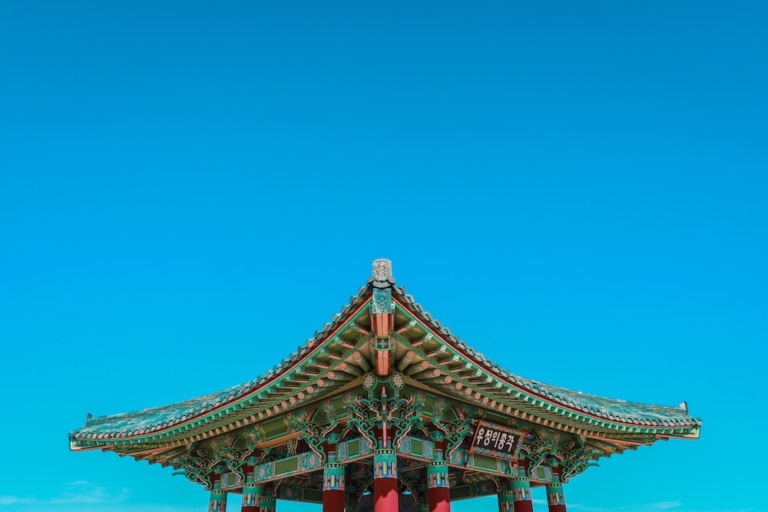

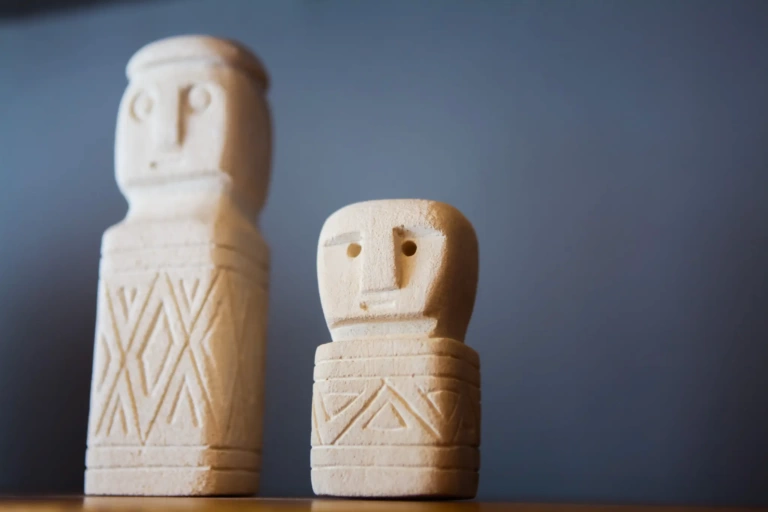


Great article! I’ll be planning on going to Kanazawa, Shirakawago and Takayama later this year and this article helped me plan out places to see and work out transportation!
Awesome ! So glad this helps. Enjoy your trip, this part of Japan is stunning!